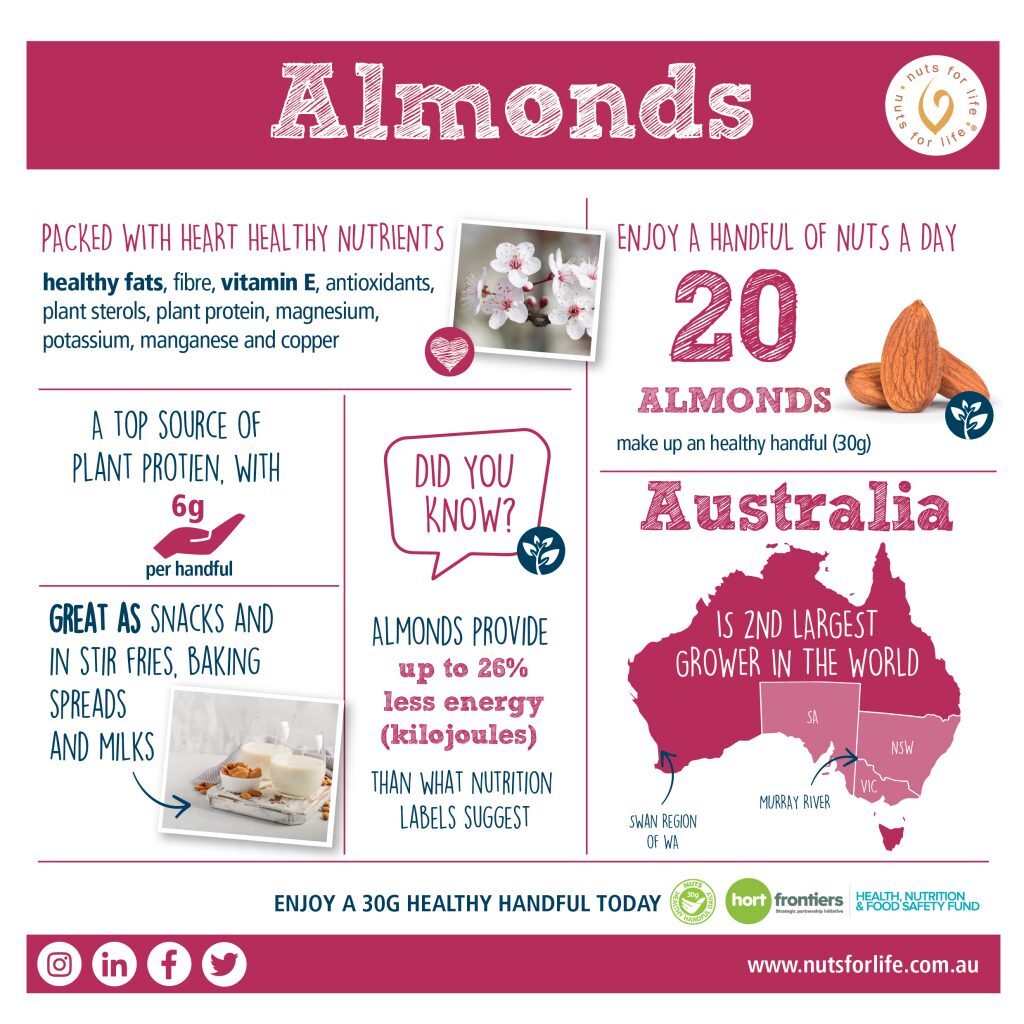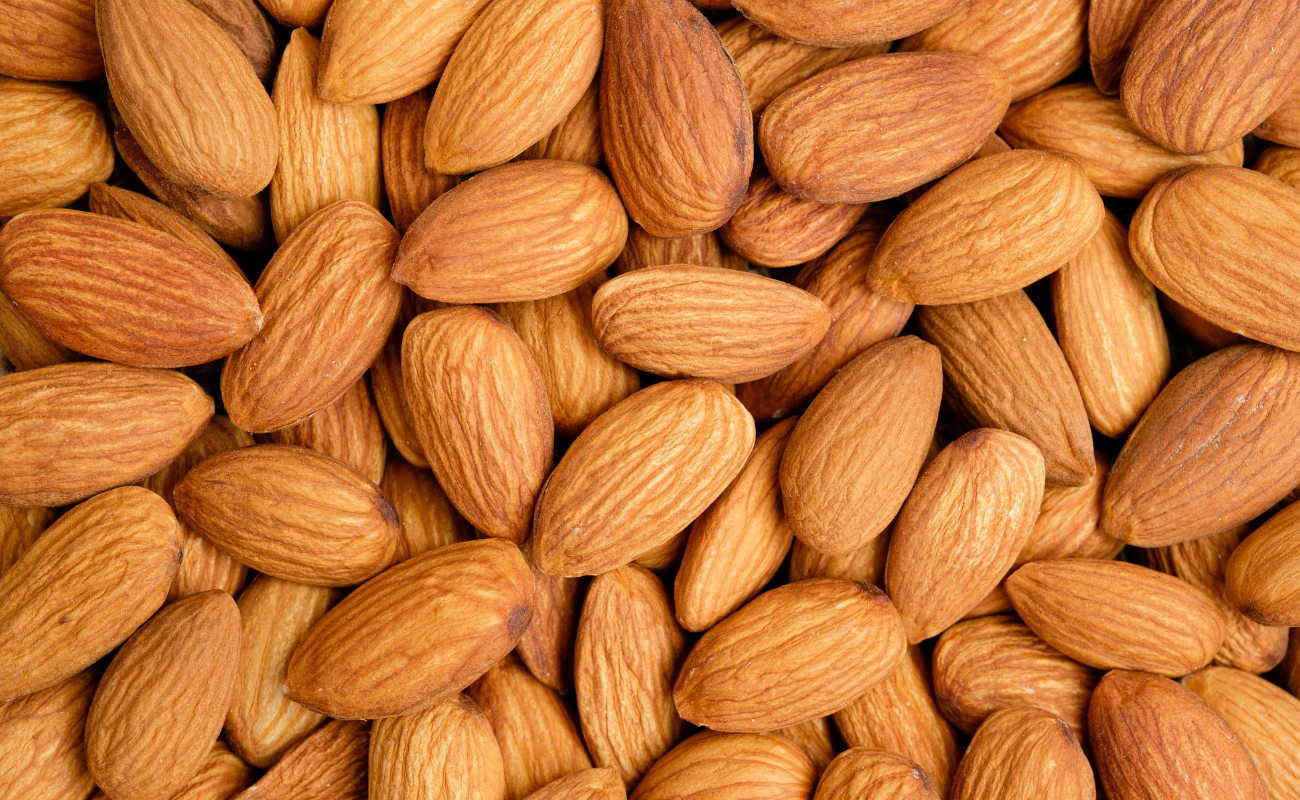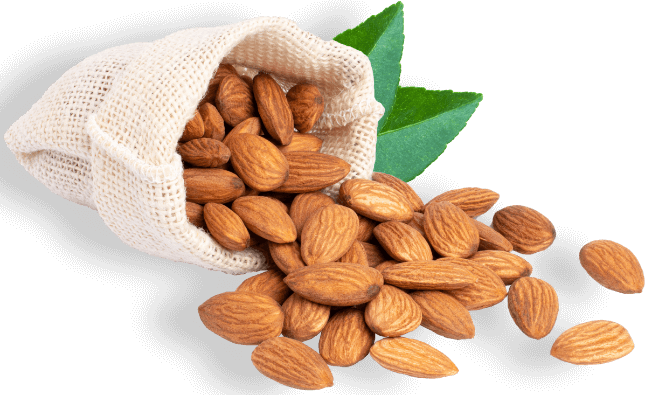This article has been republished from Nuts for Life. Read the original article.
Almond Day
Celebrate Almond Day on 16 February with a healthy handful of this tasty and nutritious nut. In fact, almonds are one of the most nutrient-dense foods around!
And did you know that Australia is the second largest producer of almonds in the world?
In 2020, Australian-based growers produced around 114,000 tonnes of almonds (kernel). Around 61% was produced in Victoria’s growing regions, followed by South Australia (20%) and New South Wales (18%).
Six fast facts about almonds:
- Almonds (along with pistachios) have the most protein of all tree nuts, providing 20g of plant protein per 100g – or 6g in a 30g handful.
- When it comes to the fatty acid profile of almonds, they contain predominantly heart-healthy mono-unsaturated fat.
- Just one handful (30g) of almonds gives adults more than 80% of the Recommended Dietary Intake (RDI) for vitamin E – an antioxidant that’s not only good for skin, but also for a healthy heart.
- Almonds are rich in gut-loving fibre. They contain 11g fibre/100g, or 3.3g in a 30g handful – making their fibre content roughly on par with a cup of cooked broccoli or two bananas.
- Among tree nuts, almonds are a top source of magnesium (second only to Brazil nuts). Studies suggest magnesium has a part in helping to improve insomnia, especially in older people.
- Research suggests we may not actually absorb up to 26% of the kilojoules in almonds! This is because some of the fat in almonds is held (or trapped) within the nut cell walls, making it hard for the body to digest and absorb – so instead, it’s excreted.
Snacking on almonds
According to Australian research, published in 2022, snacking on a handful of almonds could cut daily energy (kilojoule) intake, helping to keep extra kilos at bay.
The University of South Australia study, involving 140 people, found that those who ate 30-50g almonds – as opposed to a kilojoule-equivalent carbohydrate snack – lowered their energy intake by 300kJ at the next meal.
The researchers suggest eating almonds impacts several appetite-regulating hormones – such as glucose-dependent insulinotropic polypeptide, glucagon and pancreatic polypeptide.
Adding weight to these findings, is an earlier (2021) randomised cross-over study, involving 100 people.
This found snacking on almonds mid-morning, rather than sweet biscuits, not only lead to significantly lower blood sugar levels – but over the testing day, when almonds were the mid-morning snack, much less energy (an average of 638kJ) was consumed.

Try Nuts for Life Almond Recipes
Whether you eat a handful as a snack on the go, or use almond-based products, like almond milk, almond butter, almond oil, or almond meal – there’s lots of delicious ways to fit almonds into your day.
Did you know? Almond butter (or paste) can be spread on just about anything (think, toast or apples, as a start) or just eaten with a spoon! Buy nut butter in grocery stores, or make your own at home.
Nuts For Life





